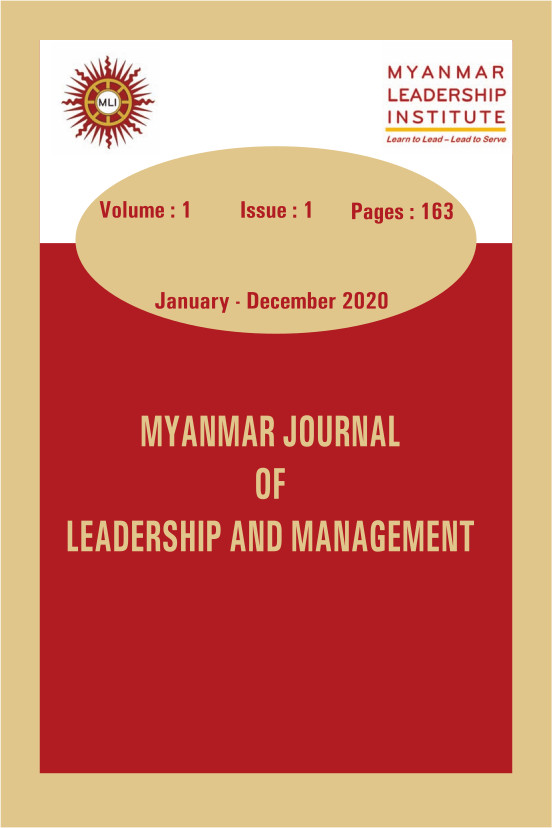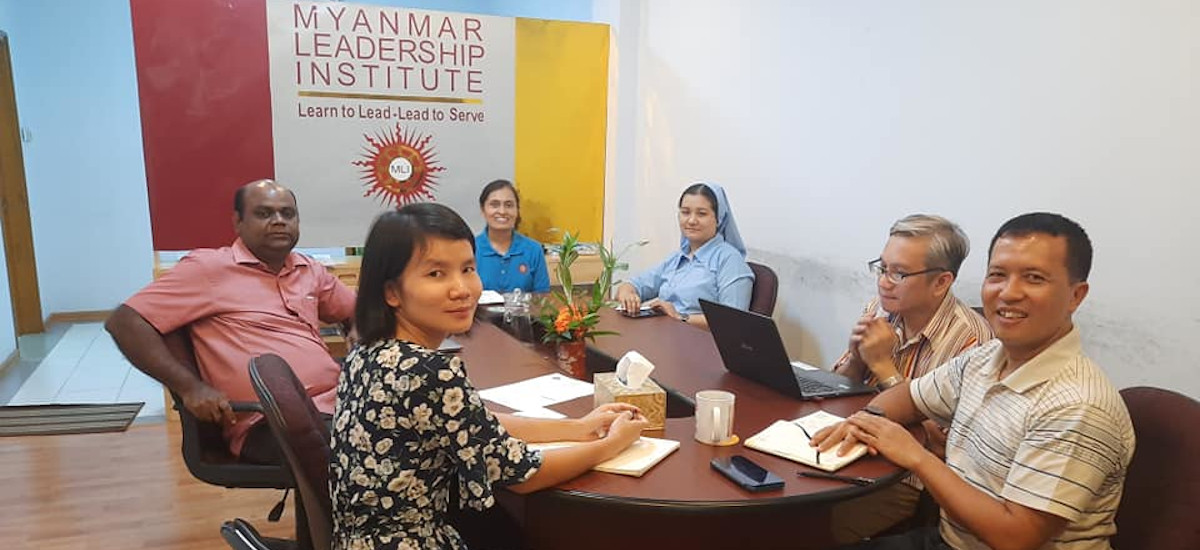Despite the pandemic, the Myanmar Leadership Institute (MLI) continues to be active in online leadership training, networking, research, and publication. MLI shifted to virtual classrooms by August, wishing not only to remain sustainable as an institute but also to reach students who are stuck in their homes. The enthusiastic, determined efforts of the MLI faculty, their willingness to share their knowledge and experience is inspiring. Their “loving and leading” is truly Ignatian.
The new Myanmar Journal of Leadership and Management was conceived and germinated during the first lockdown in April. The journal offers some fruits of the reflection on our world provoked by the never-ending pandemic. It is a statement of hope for a creative future and a testament to the intelligence and hard work of both my colleagues and students.

There is great variety in the journal. The diverse articles reveal earnest enquiry into problems of life and crisis situations in our society. Our staff and students shine a light into aspects of personal growth, education, and leadership, hopefully stirring the reader’s critical thinking and prompting further reflection. Each article asks questions about our world. Covid-19 shows that now is an opportune moment to become servant leaders – to listen, empathise, heal, be aware, persuade, have stewardship, and to commit to the growth of people through building community.
This maiden issue focuses on education, leadership, and management. It argues that Myanmar’s education system can facilitate leadership development, through promoting critical thinking skills. By promoting a learning system that facilitates rational inquiry, it will promote a community that can inquire diligently and learn assiduously. Another article identifies how women leaders have courageously challenged the status quo and provided alternative paradigms of leadership. So, too, it is argued that safe environments for children must be provided where they can develop their capacity and skills. Leadership and good management are needed so that children will be protected and cared for, that survivors of abuse receive justice and care, and that child abuse perpetrators are brought to justice. The journal picks up the endemic problems of human trafficking, detailing how many trafficking victims experience emotional trauma due to denial of their rights, but also physical force, torture or food deprivation. The articles touch on the leadership and management qualities needed to establish systems of law and order that function with transparency and equity in Myanmar’s evolving environment.
Now Myanmar, like much of the world, is hugely impacted by Covid-19. Employment and economic opportunities are ripped from people’s hands. The survival of many, already living below the poverty line prior to the pandemic situation, will depend on the decisions of local leadership. Moreover, ongoing, unresolved conflicts in the country impact on the whole community. Community leaders, those negotiating for peace, and other stakeholders must acquire skills of leadership and management, and find the inner resources to deal with the chronic mistrust created in the country over decades of conflict and forced isolation.
Practices and habits adopted during this pandemic crisis will surely become permanent. MLI is also adapting to the future ways of learning. In addition to articles, the Myanmar Journal of Leadership and Management plans to publish shorter “think pieces”, reports of research in progress, as well as analysis of current and topical practice and policy in the fields of education, leadership, and management. We see that this can have an impact within Myanmar society. Our desire is to motivate the broken, inspire the inventive, and educate all, especially the lost.
The journal will be available beginning November 2020 at the Myanmar Leadership Institute in Yangon. Those interested to purchase may email mli[dot]inquiries[at]gmail.com or mlimarketing1910[at]gmail.com.








